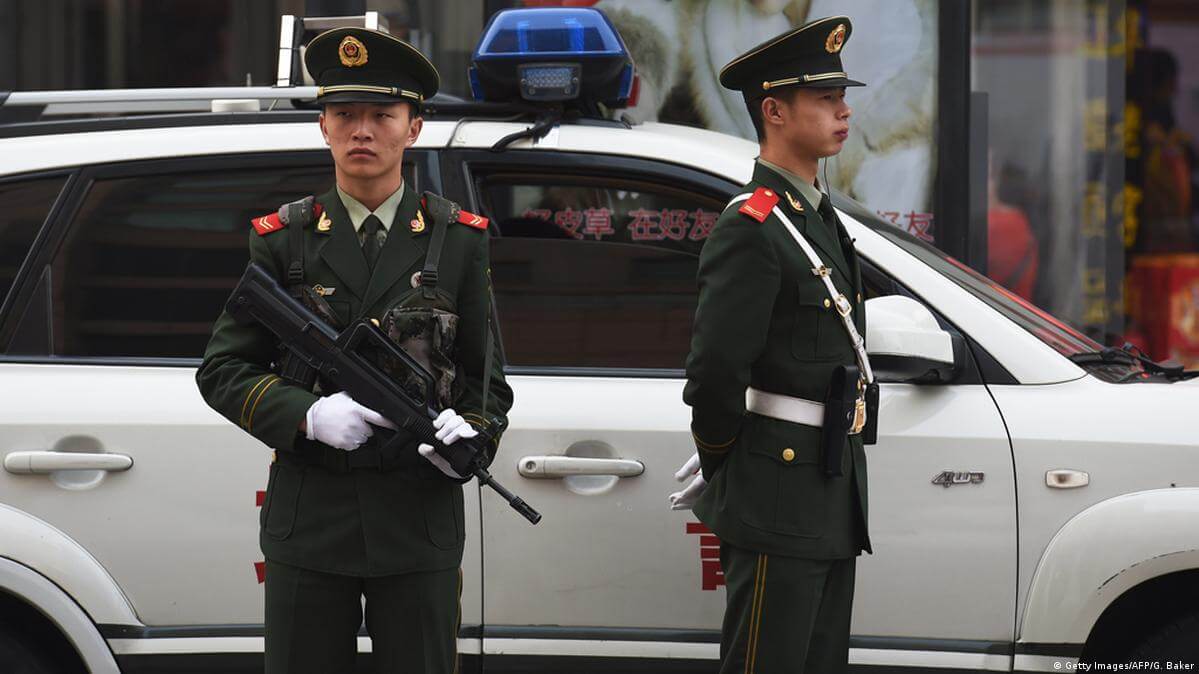Canada has summoned the Chinese Ambassador Cong Peiwu several times over the last few weeks to explain troubling reports of Beijing operating at least three illegal police stations in the country to monitor Chinese citizens.
Speaking to the House of Commons Canada-China committee Tuesday, Weldon Epp, the director general for North East Asia at Global Affairs Canada, said that both sides had already had “several engagements.”
“We’ve called the ambassador in on multiple occasions and we have conveyed our deep concern,” he said.
He added that the Canadian government had “formally insisted” that Beijing, including Cong, must “take account for any activities within Canada that fall outside of the Vienna Conventions and account for those [and] ensure that they cease and desist.”
Epp also revealed that Canadian Foreign Affairs Minister Mélanie Joly will take further action and meet with the Chinese ambassador.
The Royal Canadian Mounted Police said last month that it has opened an investigation into the matter, saying it “takes threats to the security of individuals living in Canada very seriously and is aware that foreign states may seek to intimidate or harm communities or individuals within Canada.”
Spain-based NGO Safeguard Defenders said in a report in September that China has opened dozens of police stations around the world to monitor its citizens living abroad, including in Cambodia, the United Arab Emirates (UAE), the Philippines, Thailand, Myanmar, Laos, Malaysia, Turkey, and Indonesia.
It revealed that Chinese authorities have been persuading and pressuring Chinese nationals living abroad to return home and “face justice” in order to tackle the “growing issue of fraud and telecommunication fraud by Chinese nationals abroad.”
According to the report, from April 2021 to July 2022, Chinese authorities were able to successfully persuade 230,000 suspects of telecom fraud to return to China.
Notably, the report, titled “110 Overseas: Chinese Transnational Policing Gone Wild,” also pointed to the Chinese government’s use of “extensive online campaigns,” along with the setting up of “Overseas Police Service Stations” on five continents under the guise of local “Chinese Overseas Home Associations,” which are usually linked to the Chinese Communist Party’s United Front Work.
As part of its pressure tactics, Chinese authorities threatened suspects with depriving their children of the right to education back in China, as well as by “intimidation, harassment, detention or imprisonment” of family members, to persuade them to return “voluntarily” as part of a “guilt by association” campaign.
Together with @bueti we initiated a cross-party letter of Members of @Europarl_EN & EU Member States’ national parliaments to @eucopresident concerning the illegal Chinese police stations pic.twitter.com/MUnIexX9jF
— Miriam M. Lexmann (@MiriamMLex) November 30, 2022
If discovered to be true, the act would be in violation of the Vienna Convention on Consular Relations, which stipulates that such administrative services must be conducted by embassies and consulates.
Moreover, under the Vienna Convention on Diplomatic Relations, diplomats stationed abroad can only carry out work for which they are accredited and have “a duty not to interfere in the internal affairs” of their host countries.
Laura Harth, a campaign director at Safeguard Defenders, said that the group believed that in “most countries… it’s a network of individuals, rather than ... a physical police station where people will be dragged into.”
“It’s completely illegal under international law. It’s a severe violation of territorial sovereignty,” she added.
The Chinese embassy in Ottawa has denied the allegations, saying last month that it has only established “service stations” in the country to help Chinese nationals in Canada process paperwork and obtain Chinese driver’s licenses.
It stated that these centres are run by volunteers, who are “not Chinese police officers” and are “not involved in any criminal investigation or relevant activity.”
“Due to the COVID-19 epidemic, many overseas Chinese citizens are not able to return to China in time for their Chinese driver’s license renewal and other services,” the embassy said.
The Conservative Party’s shadow public safety minister, Raquel Dancho, who questioned Epp, said that Ottawa should expel any Chinese diplomats found to be involved in the supposed police stations.
Dancho also called on Prime Minister Justin Trudeau to publicly condemn China for “a shocking affront to our sovereignty.”
Trudeau assured on Thursday that his government is working to ensure that no Canadian citizen or resident is subjected to foreign interference.
“Our Canadian intelligence services are working very hard every day to ensure the safety of all Canadians. They are monitoring the situation and they provide information to me regularly on any interference from foreign governments against Canadian communities,” he said.
Only earlier this month, Trudeau warned China against playing “aggressive games” with democracies, as reports emerged of a sweeping campaign of foreign interference during Canada’s 2019 federal election.
An investigative report by Global News had found that China covertly funded a clandestine network of at least 11 candidates during the 2019 federal election, including paying candidates associated with the Chinese Communist Party (CCP) through mediators and placing agents in the offices of Members of Parliament (MPs) to influence policy.
China then retaliated by saying that it has “no interest in Canada’s internal affairs.”
The United States and the Netherlands are also carrying out an investigation into the matter of overseas Chinese police stations within their borders.
In a related development, Canada released its new Indo-Pacific Strategy document last week, in which it describes China as an “increasingly disruptive global power” due to its “coercive diplomacy and non-market trade practices.”
Beijing retorted that Ottawa is the “true disruptive force to global peace, security, and development” and warned of ‘forceful countermeasures.’

